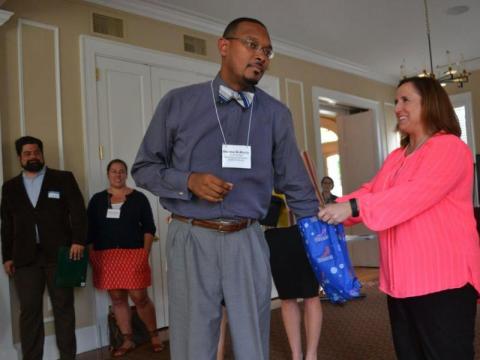Tulane trauma study launches in six New Orleans schools
Six New Orleans public schools have been selected to participate in a Tulane University study to determine the best ways to meet the needs of trauma-exposed students.
The four-year Safe Schools NOLA study is being funded by a $2.6 million grant from the National Institute of Justice. The study will be led by by Stacy Overstreet and Courtney Baker, both in the Psychology Department at Tulane.
During the 2016-17 academic year, researchers will help implement strategies that aim to transform schools into trauma-sensitive learning environments that better address the social, emotional and behavioral needs of students exposed to trauma.
"The Institute for Women and Ethnic Studies has found that 52 percent of students have been personally affected by homicide.”
Stacy Overstreet
Participating schools are Arthur Ashe Charter School, Phillis Wheatley Community School and Samuel J. Green Charter School, all from Firstline charter network, and Cultural Arts Academy, Schaumburg Elementary School and SciTech Academy, part of the ReNEW network.
“Local data shows that over 90 percent of children in New Orleans public schools have experienced at least one kind of trauma in their lives,” Overstreet said. “It’s everything from violence in the community to a parent going to jail to the death of a loved one. The Institute for Women and Ethnic Studies has found that 52 percent of students have been personally affected by homicide.”
The study is comprised of four pillars of intervention, beginning with shared learning “so that everyone in the school community understands what trauma is and the impact of trauma on students and the school community,” Overstreet said.
Teachers will be trained in how to build a safe and supportive environment, and each school will be provided with a support specialist to observe and coach teachers as they put their newly learned skills into action. School leaders will receive equally intensive training.
Schaumburg principal Maurice McMorris said the intervention will “facilitate the development of the whole child and deepen the knowledge of our faculty so that our students will ultimately become lifelong learners and positive contributors to society.”

